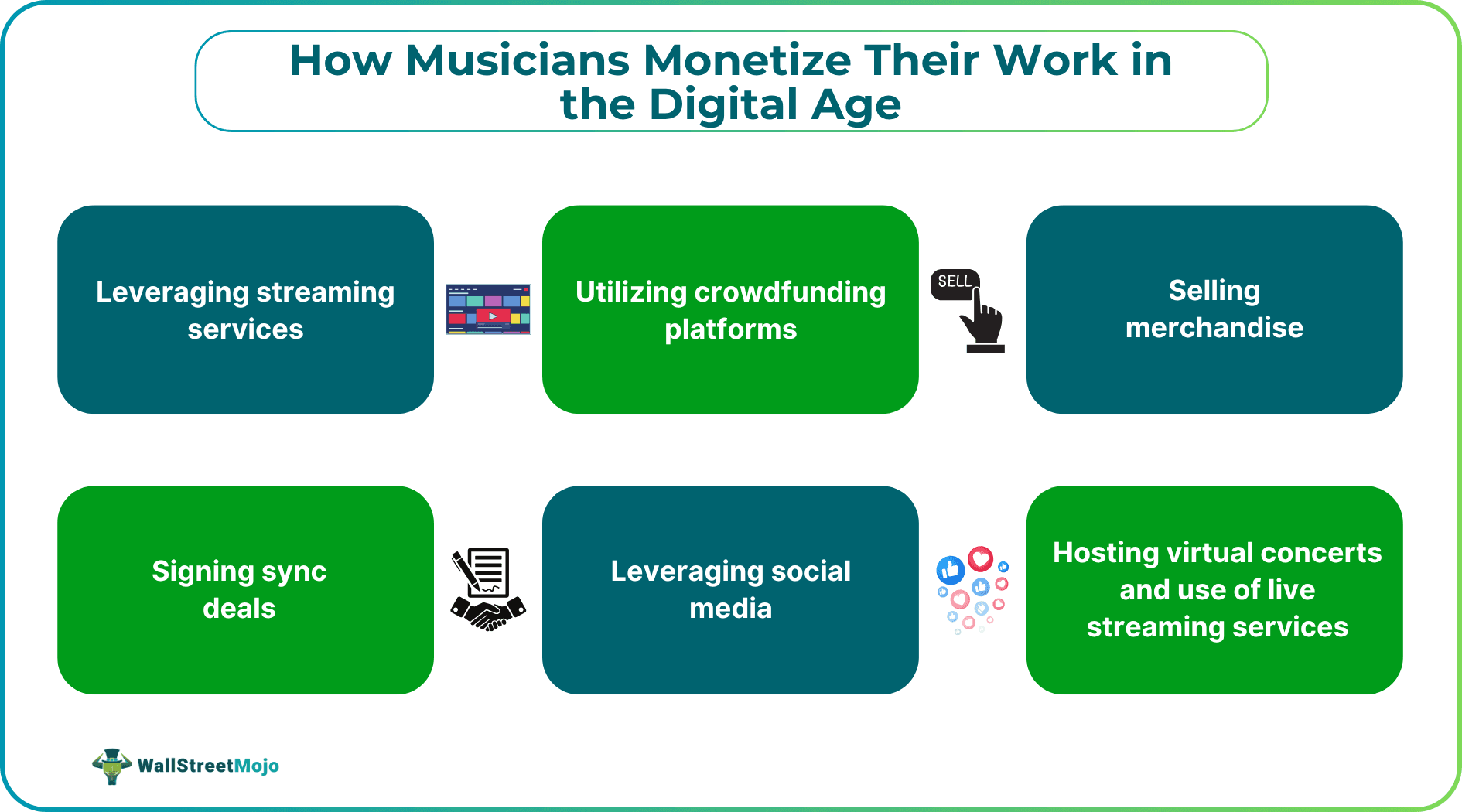How Streaming Platforms Have Changed The Financial Landscape For Creators
Table of Contents
Introduction
With digitalization and the evolving behavior of consumers, the music industry has undergone a significant transformation. On account of the innovations concerning digital technology, musicians and record labels are no longer primarily reliant on the sale of CDs, concert tickets, or physical records. This is because they now generate income via global digital ecosystems that comprise social media and streaming platforms.

If you are wondering how musicians monetize their work by leveraging digitization, this article can prove to be extremely helpful. Here, we will discuss the various ways for labels, artists, and other key stakeholders to earn money using different music monetization strategies in the fast-evolving digital landscape of the music industry.
Streaming Services: A Double-Edged Sword
In the past couple of decades, the rise of streaming platforms, such as Apple Music and Spotify has revolutionized the creation, distribution, and consumption of music. While it has largely benefited consumers, allowing them access to all the songs of their favorite artists instantly, musicians are enjoying the advantagesm too. Indeed, if you are an artist, you can use digital tools to master your tracks instantly and release them on streaming platforms to start generating revenue via per-stream payments. This way, they don’t have to rely mainly on album, ticket, or merchandise sales.
What’s even better is that the streaming revenue for musicians can be generated on different platforms at the same time, provided the policies of certain platforms do not restrict the same. The availability of the music on different platforms improves the visibility and reach of the artist.
There are different strategies for people interested in making money as a musician through streaming. For example, they can try to get their tracks on popular playlists and engage in social media promotion. Also, they can consider interacting with their fans via digital events, Q&A sessions, etc. Interactions with audiences can help in strengthening the connection, which may influence them to support the music streaming.
While streaming is an effective music monetization strategy, there are certain disadvantages as well.
- The average payout on some platforms can be very low, which means musicians will need a significant number of streams to earn a considerable amount.
- Since various competitors upload their music for streaming, generating money can be difficult.
- Streaming income can be unpredictable.
Now that you know how musicians monetize their work through streaming, let us explore the other ways to earn money
Crowdfunding Platforms for Creative Independence
If you are thinking about making money as a musician, using crowdfunding platforms can be a wise move. These platforms allow individuals to raise funds from the public directly, which, in turn, helps fund music projects.
Indeed, with the money raised, they can plan tours, shoot music videos, and record an album. This way, musicians do not need to rely on loans or record labels for money. Also, since they do not have to sign any record deal, they can have complete control over their creative vision.
The Rise of Merchandising in the Digital Era
Achieving success within the music industry in the digital era requires musicians to build relationships with fans and diversify their revenue streams. One way to achieve these two objectives is to leverage merchandising. Musicians can sell their merchandise via different channels, such as the following:
- Ecommerce platforms or their official website
- Live show venues
- Email marketing
- Social media platforms
- Physical retail stores
To create merchandise that people buy, artists must work with manufacturers, suppliers, and designers who can produce merchandise of high quality that resonates with their fans. Also, it is important for artists to assess certain factors like purchase behavior, demographics, and the age of the target audience to create the right merchandise.
Licensing and Sync Deals: Profiting from Media Collaborations
Another way how musicians monetize their work is sync licensing. It is now a crucial revenue stream across many industries, including music. Through sync deals, artists can let companies use their creative work in media, for example, commercials, films, online content, and television series. These deals allow musicians to earn money immediately. Also, it improves brand recognition and visibility for the artists.
The fundamental system of these deals revolves around granting legal permission to utilize a certain piece of work in sync with the visual media. Typically, the agreement involves the payment of a fee to the holder of the rights. Note that this fee varies based on the scope of a project, the artist’s negotiating power, and the work’s popularity.
Live Streaming Performances and Virtual Concerts as Revenue Channels
Among musicians, live streaming and virtual concerts are another important source of digital music income. These performances expand the reach of the musician and allow them to get exposure to global audiences. Fans need not travel to experience their performance; they can watch the artists perform from the convenience of their homes.
Note that there are various platforms on which artists can host such performances. Besides generating streaming revenue for musicians, these platforms can provide comprehensive analytics, for example, the preferences and viewing patterns of audiences. Such insights help in guiding future marketing strategies and performances, which, in turn, assist in the effective expansion of the fan base.
Final Thoughts
The digital era has proven to be a game-changer for musicians, allowing them to generate sustainable digital music income in various ways. While the different revenue channels have their own set of challenges, artists can now think beyond traditional income sources, like tickets and album sales, to reach their financial goals.
Once a new artist has a clear idea of how musicians monetize their work, they should take the necessary measures for revenue diversification and building strong connections with fans. Moreover, as the industry keeps evolving, it is important to adapt and explore new revenue streams that ensure success.
